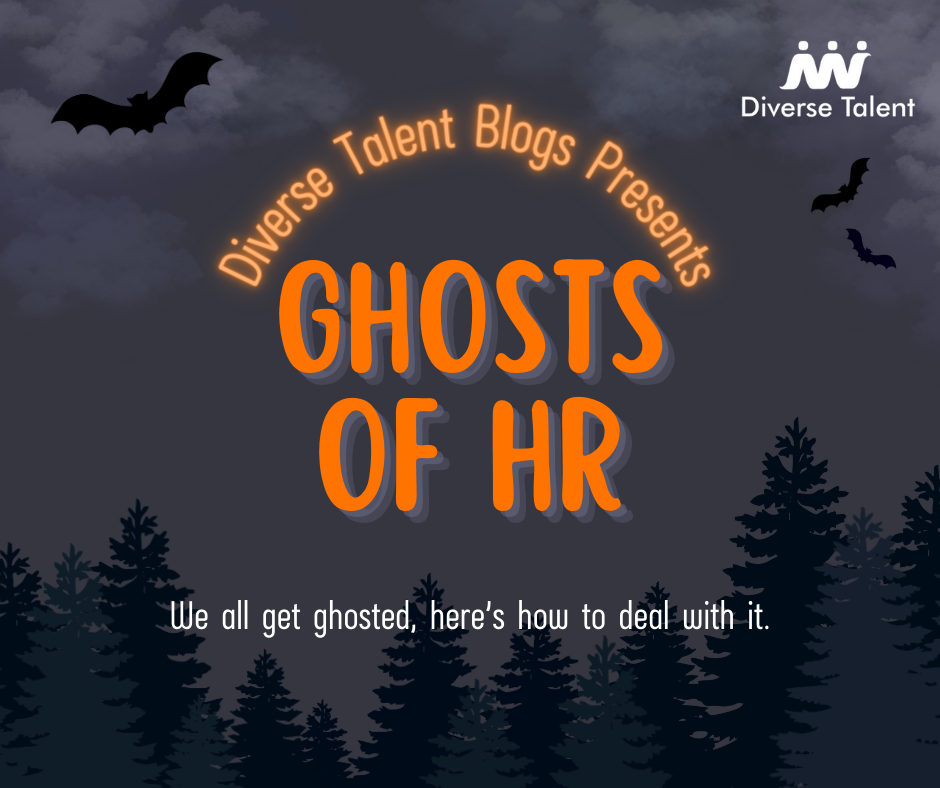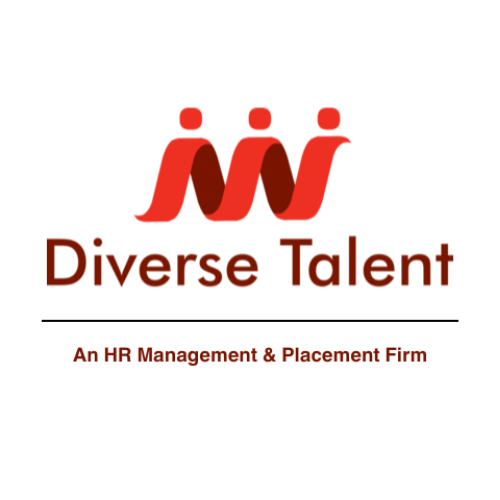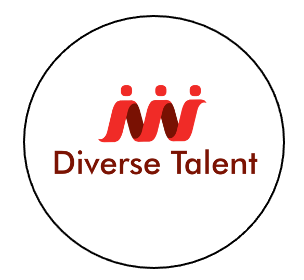BLOG & VLOG

By Greer Campbell
•
04 Mar, 2024
Growing your organization requires the right team. Hiring the right team requires the right approach. Vetting and getting to know potential hires is key to building an effective culture. Interviewing candidates is your first chance to understanding applicants, their skill sets, their professional goals, and more. But just as you are vetting applicants, they are vetting you. The interview process allows applicants to gain a better understanding of your organization’s goals, culture, and needs. Setting the right example and perspective on your company begins with your interviews. One wrong or controversial question, and that could break a potential beneficial business relationship. See below for examples of questions to avoid asking candidates in interviews, and why. Are you planning to start a family soon/Are you planning to expand your family soon? While this seems like an obvious conflict, many companies are still asking this to potential employers. This makes the applicant feel like that would make or break their candidacy. Mothers and fathers in business want to feel support from their employer, an unspoken sense of support. Starting a family or having a family does not dictate a candidate’s professional abilities, therefore there is no reason to ask. What are your religious, political, and sexual stances? Again, these are personal attributes that do not affect a candidate’s ability to perform professionally, therefore can be seen as inappropriate and reason for termination of consideration for candidacy. Where are you originally from? While on the surface this may seem like an innocent question, it is illegal under Title VII of the Civil Rights Act of 1964 making it illegal to discriminate against someone on the basis of national origin. If you ask, you could be accused of discriminating against them. You can, however, ask if the candidate will be able to report to the position location required by the job opening. How old are you? It is illegal to ask someone’s age, you are only allowed to confirm the candidate is of legal age to work full time, being 18 years old. What salary did you make at your previous role? Many states have implemented a salary transparency law, enforcing job postings and descriptions must portray the salary range for the position. Even if your state does not have this law, it is safe to avoid asking a person’s salary history. Instead, share the salary range and confirm the candidate’s expectations are within the range. As the market continues to be competitive and ever changing, engaging a 3 rd party service like Diverse Talent can greatly benefit in finding your organization’s right fit based on our industry expertise.

By Alanna Jones
•
23 Jan, 2024
After resignations and layoffs during 2023, it is crucial for employers to leverage technology to help their employees thrive. Employees are seeking good company culture, growth opportunities, and company priorities which help to retain and attract employees. When looking for new talent, we first must understand what job seekers are looking for. Here are some of their top priorities in 2024: Participation in meaningful work Engagement with good management Increased work-life balance Desire for hybrid or remote work The labor force is changing, and employees aren’t afraid to stand up for what they want. Job descriptions and interviews can portray the company values and culture which can make all the difference in the choice an employee makes. Including remote workers in your search opens opportunities to find talent in a wider area and reduces the impact employees have on the environment by reducing or eliminating their commute. With the focus on new employees during 2024, focus still needs to be on the current employees, the ones who the workforce is not limited to understanding what jobseekers are looking for. Current employees also have desires. Some of which are listed here: Retention Promotion and growth Development and upskilling Fear of job replacement by technology Your employees want to stick around and as a business leader you are responsible for giving them reasons to. Competitive pay is a bonus, but also leveraging HR and creating a space where your employees feel comfortable and valued is just as important. Help provide your employees with the resources and time to learn more skills, after all it only makes them more valuable to your company. How can you leverage technology in HR in 2024? Writing job descriptions and filtering candidates Automation of tasks and training Finding and generating key words Gathering data to make informed decisions Technology and AI will continue to have an increased presence in the workplace and should be used as tools. They are not meant to replace your work and instead should be used to drive efficiency. You should use AI to help write job descriptions, assist in scheduling, generate interview questions, help jumpstart a brainstorming session, and improve your company’s visibility through SEOs. Your company should even use technology to gather data on employees. See what skills they lack, what your company culture is lacking, and then use online platforms to train and upskill your employees. In 2024 decisions regarding employees should be driven by data. If your company does not leverage all the data accessible you will fall behind. Use technology to find, retain, and train your employees. If you are looking for talent or HR services, contact us at DT@diverse-talent.com . We’ll help gather data throughout the search process to ensure that we bring quality candidates to you. We focus on highlighting a workforce that reflects our country’s demographics and are eager to connect with potential candidates to fill your open positions.

By Greer Campbell
•
25 Oct, 2023
In honor of spooky season, there is one ghoul that has no kryptonite in the realm of HR…Ghosting. As HR professionals, we’ve all been there. You set up an interview with a stellar candidate on paper, join the video call 10 minutes early to ensure professionalism, and wait. 5 minutes. 10 minutes. Anxieties and frustrations rise. Your mind goes to the negatives; “How dare they waste our time!” “They were probably trying to scam us.” “Better now than later!” In today’s professional world, today’s job market, jumping immediately to the negative will only hurt your process and company in the long run. The world of work is changing, and we must take all the steps before diving headfirst into cynicism. So, You’ve Been Ghosted…What’s Next? Let’s start with an example: Molly, a Houston resident Software Engineer, is set up with an interview for your open role. Her background and skill sets look like a perfect fit. Scheduling the interview via email was fast and promising. The calendar invite went out, Molly accepted it, you’re moving right along. The interview comes, you and your colleague wait 10 minutes after Molly’s call time, but alas, no Molly. So, what comes next? Your impulse may tell you to scratch her from the running. You don’t need to follow up, she was the one who ghosted you! No excuse will suffice, you’re onto the next one. But what if Molly did have a viable excuse? What is Molly works from home and her power went out last minute? What if Molly is a single mother and her child’s school called with an emergency? Next time, and there will be a next time, fight the impulse and try to take the following or similar steps: Give your candidate a call! Technology, as advanced as it’s become, continues to glitch, and give users issues. Your candidate may be frantically and desperately trying to login and experiencing difficulties. Send a follow up email. There is a reason you and your team were so thrilled about the candidate. Giving a candidate grace, sending a “We missed you on the interview, willing to reschedule?” note can go a long way in not only working toward the perfect match for the role, but the candidate will see that you’re a company that values and understands people’s experiences. Even if the no-show is a deal breaker, don’t let the relationship obliviate. Your candidate no showed and now has been removed from consideration for the role. Even though they did not offer you any reasoning, sending an email explaining your reasoning will round out the process, with you and your organization taking the high road. It may be Halloween time, but reactions and impulses don’t have to be a nightmare. For more guidance or information, visit www.diverse-talent.com

By Greer Campbell
•
25 Sep, 2023
There is no question that a racial and gender pay gap exists and persists across all industries in the United States. Slowly but surely small steps have been taken to close the gap, but nonetheless, the gap remains. This can be very frustrating for professionals in HR and job seekers that want to make a change, but don’t always have the power to do so. Change does not always have to be the responsibility of major organizations and officials. Change begins with you. Below, we have listed various ways you yourself can close the pay equity gap and start making changes in your organization. Let’s Start with Stats In 2023: · White women make $0.73 for every dollar a White Man makes. · Black women make $0.64 for every dollar a White Man makes. · Latina women make $0.54 for every dollar a White Man makes. · Native American women make $0.51 for every dollar a White Man makes. In 2020, Men ages 45-54 were paid 30 percent more than women of the same age.* What Can You Do? Diversify your Executive Level Hiring The pay gap is contributed by “occupational segregation”, meaning that women and women of color are strongly represented in lower paid positions and industries, with little to no internal growth, including caregivers, education, administration, and more. Considering and hiring women and women of color in executive opportunities will close the pay gap significantly, especially internally for your organization. Statistics show that a diverse team at the executive level leads to increased productivity, perspectives, and positive moral. Job Seekers: Do Your Research If you are in the market for a job, make sure you conduct your research on what level and compensation your skill sets and experience require. Knowing the market and industry hiring trends before you get into the interview stage of negotiations will greatly assist in communicating your expectations and advocating for the treatment you deserve. HR Departments: Cultivate an Inclusive Organization To diversify your organization, it’s essential that your hiring process is inclusive, and your company culture reflects one that will retain diversity. Ensuring your interview questions and qualifications are equitable and representative of all backgrounds will bring a broader slate of talent and provide confidence in job seekers that your organization is committed to engaging multiple perspectives. Having internal resources and diverse representation at the executive level will lead to better retention diverse perspectives, and in turn lead to a more diverse executive team. Change starts with you and your team. If you are still hesitant on what you can do, contact DT@diverse-talent.com to set up a consultation and discussion. Statistics found via Pew Research Center, Article by Eileen Patten.

By Greer Campbell
•
13 Jun, 2023
The average American professional spends about 90,000 hours of their lives working. That’s roughly 13% of one’s entire life. With such a large amount of time devoted to work, it’s understandable to want a comfortable and safe environment to do so. This month, we celebrate and acknowledge the history and experiences of the LGBTQA+ communities. While our country has made immense strides toward positive change for the underserved community, there are still major gaps to be filled when it comes to allyship in the workplace. Forbes Magazine estimates approximately 46% of LGBTQ employees do not openly identify in the workplace. This tells us, they do not feel it is a safe space to show up authentically, and not only can that affect their mental health and sense of belonging but will also negatively affect your organization’s rate of success. To ask for inclusion and comfortability is not to ask for much. Below are some things that make a difference in the community’s experience. Not Asking Your LGBTQA+ Employees to Conform to the Norms of the Workplace Inclusion is all about authenticity. Enforcing a certain hairstyle, dress code, and other physical demands can lead to confiscation of one’s entire identity. To an extent, allowing your employees to show up authentically will give them the sense of comfort and support needed to really feel a part of the team. Implement Policies, Procedures, and Support Groups Addressing discrimination head on and directly gives your LGBTQ+ employees advocacy and champion. Putting the necessary procedures and programs into place ensures managers and team members have the backing to call out discrimination with an actionable outcome to build a more inclusive company. Establish an Open-Door Environment Every employee and team member comes with their own experiences and backgrounds. Some days may show up harder than others, and if your team carries their hardships into work with no outlet for release, it can affect the success and collaboration of your team. Setting the expectation that your team can come to you in any capacity can set a tone that this is more than a job and they are more than just employees. To know someone is supporting you more than just monetarily can create a space for authenticity to flourish and be celebrated. Finally, the biggest way to begin is to educate yourself. Have the necessary and uncomfortable conversations. Confront any biases you carry head on and decide how you are going to make the change for the better. This month, and every month here-after, we celebrate and appreciate our LGBTQA+ communities. For more information on inclusion tactics and workshops, visit www.reach-training.org .

By Greer Campbell
•
26 May, 2023
In 2020, the country shut down. Students, children, professionals, everyone locked at home to sit with their pets, and their thoughts. This quarantine shifted the majority of our nation’s professional mindset. Incentives, benefits, culture, all took an unfamiliar front seat in career decision making. With this shift in mindset, came the Great Resignation. So, what are job seekers really looking for? Well, for one, a good and comfortable culture fit. Compensation is no longer the driving factor leading to an accepted job offer, but how are you as the employer going to take care of your team. The idea of empathy in the workplace has formerly been perceived as taboo. “There is no room for emotions in the workplace” is a sentence that many organizations stood on. Now, that ideology is not going to retain talent, or a cohesive team. Empathy absolutely must have a seat at the table in your organization. It needs to be represented at the Executive roundtable discussions, at your employee 360 review at the end of the year, and everywhere in between. Because this is a huge adjustment for many, the question becomes, “Where do I begin?”. It takes time, attention, and effort, but here are a few tips to get your organization started. What is Emotional Intelligence and How Does it Show Up in the Workplace? When an organization is looking for their next leader, or next addition to a management position, there are many skill-sets that are required of the applicants. Years of leadership experience, a college education, certifications, but one key qualification that has been looked over is Emotional Intelligence. To be emotionally intelligent is an individual’s capacity to be aware of, manage and express emotions and to be able to manage the emotions of others (Gerri Grossman, 2008). To be a leader is to be a coach, a mentor, a confidant. If a manager does not have the ability to effectively express or receive emotion, it is impossible to be an outlet or person to confide in. If your team does not feel comfortable in having an open and honest conversation with their leader, the success of the team and company will be greatly impacted. How to Create an Empathetic Environment One-time trainings or video presentations will not be enough to become more Emotionally Intelligent. Starting with educating yourself is a great first step into shifting the level of empathy that exists on your team. Begin by taking an assessment to get an understanding of the level of Emotional Intelligence you currently possess. Get to know your team’s work, and communication style. Give your team the EQ assessment to see where the gaps are, and collaborate one on one in honest and open dialogue on how to move forward and cultivate an safe and comfortable culture. Making the effort is the first step toward making the change. Your organization’s success will continue at a quicker rate when you invest internally into the people behind the magic of the operations. If you or your organization need assistance in taking the first step to cultivating an equitable and inclusive culture, contact us and let’s discuss.

By Campbell Litigation
•
18 May, 2023
Campbell Litigation; The Rocky Mountain Employer Blog Heading into the second quarter of 2023, it is an opportune time to catch up on additional employment law changes that have passed through the General Assembly and are awaiting the signature of Governor Polis to become law. Of note are House Bill 23-1146, which will bolster employees' rights to accept cash tips outside of traditional, gratuity-based industries, and Senate Bill 23-058, also known as the Job Application Fairness Act, which relates to the legality of requiring job applicants to provide age-related information on initial job applications. Employer Policies Against Accepting Tips and Gratuities May Be Curtailed – House Bill 23-1146 Introduced during the 2023 Regular Session, House Bill 23-1146 may significantly limit the ability of employers to prohibit employees outside of traditional, gratuity-based industries from accepting customer tips. On May 07, 2023, this bill was passed in the Senate with no amendments made. The bill, if signed into law, will amend Colorado’s wage and hour statutes to state that it is an unlawful practice for employers to take adverse action against employees who accept cash tips from patrons, but employers may still require employees to share such gratuities with other employees according to a pre-established basis. If passed, the bill’s prohibitions would not apply to certain industries. Specifically, the bill would not apply to employers regulated by the Division of Gaming, health-care facility employees, employees engaged with programs for all-inclusive care for the elderly, and employees providing housing and services to adults aged 60 years or older. Likewise, the bill does not apply to employees required to maintain licensure, certification, or registration as a condition of their employment. Job Application Fairness Act – Senate Bill 23-058 The Job Application Fairness Act, or Senate Bill 23-058, was passed by the Senate with amendments from the House on April 26, 2023. If signed into law, then starting July 1, 2024, employers will be prohibited from inquiring into a prospective employee's age, date of birth, and dates of attendance at or graduation from an educational institution within an initial employment application. However, employers may request age-related information under certain circumstances. These include verifying compliance with age requirements tied to occupational safety, federal laws or regulations, or state or local laws based on bona fide occupational qualifications. The Department of Labor and Employment will be responsible for enforcing the requirements of the Act, issuing warnings and orders of compliance for violations, and imposing civil penalties for second or subsequent violations. Employer Considerations These changes reflect the Colorado General Assembly's ongoing effort to enhance employee rights in the workplace. Colorado employers should stay informed of these developments to ensure compliance and avoid fines, penalties, or other repercussions. Campbell Litigation will continue to monitor the status of these and other labor and employment-related bills, and is available to assist with employment law compliance issues as they arise.




